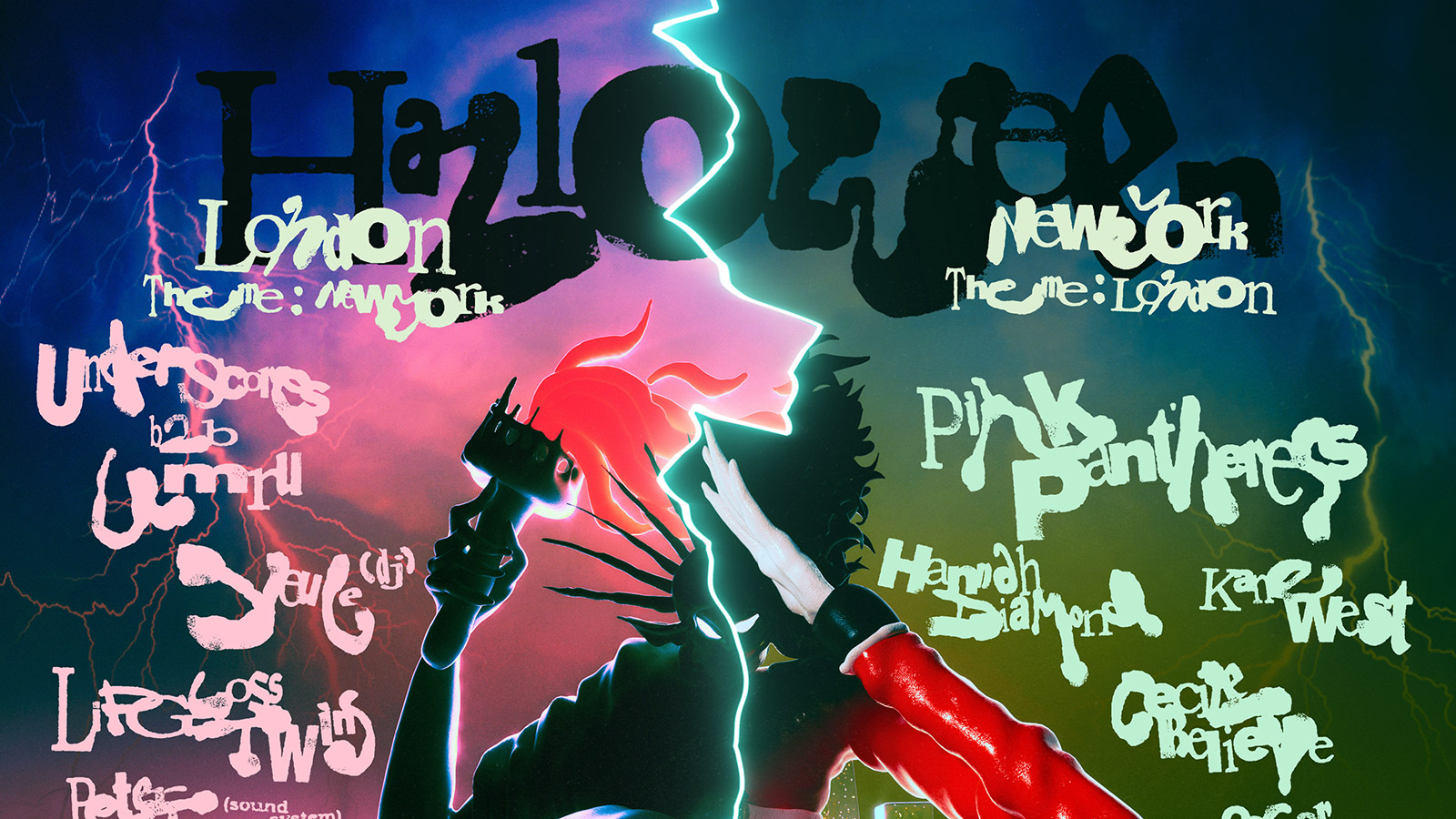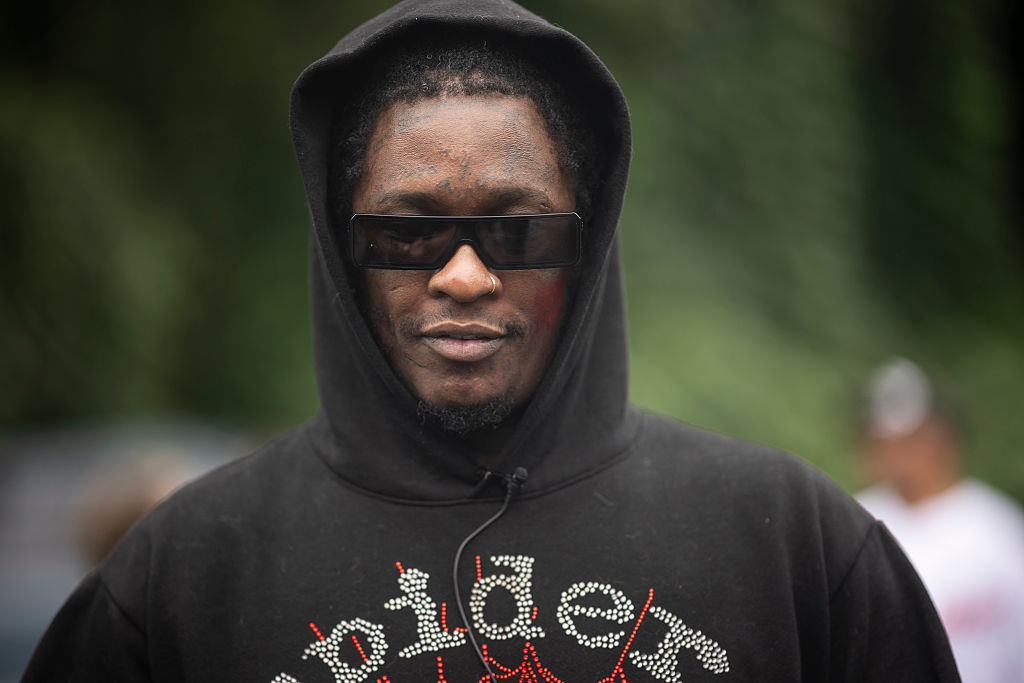“He could definitely be a cult leader, yeah?” the 32 year-old singer-songwriter jokes to me over our Zoom call. “He’s got those sort of eyes. I feel like he could convince anybody of anything.”
She chose “Lunch at Dune”, an affecting tribute to her loved ones that she wrote on a “very sad day” in a London Airbnb back in February 2020. The pandemic had just begun and everyone around her was anxious about what was about to unfold and frantically calling up their loved ones. She ended up writing the song about what she would say to hers. “You are a force that renders me defenceless,” she cries out in the chorus.
“I just shut my eyes, and I was like, ‘Just pretend no one’s here, just get through the song.’ So I did, and then when I opened my eyes and looked up at Chris, he had tears rolling down his cheeks and was very emotional.”
“He said the song was beautiful. And he actually said, ‘When I hear a song I love, I kind of hate the person that wrote it.’ And I was like, ‘I hope you don’t hate me.’”
It’s hard to imagine he would. Payten is oddly charming in how straightforward yet mannerly she is. “The WiFi in my studio has gone down, so I’m roaming the streets to try to find some phone reception,” she explains to me as she struggles to find better signal, half-apology, half-explanation.
Payten might be soft-spoken but her singing voice is a rich, commanding alto and the guiding tour-de-force on her third studio album, Like Plasticine.
“I grew up in a family of deep talkers,” she says. “I remember being in my first English class in high school, and I put my hand up to answer a question and the teacher was like, ‘Oh, my God, you’re just a 12-year-old kid, and you have this deep little voice!’”
Payten grew up singing in church and school choirs but it wasn’t until after she left high school and started playing shows that she decided to make music professionally. Her career kicked off right at the same time she was wrapping up med school, which she still wanted to finish (“bad planning on my part,” she jokes). She has since toured alongside Bon Iver (she’s even been called the female Bon Iver!), Of Monsters and Men, and Sam Smith, and is featured on Troye Sivan’s “Postcard” off his 2018 studio album Bloom.
Payten now splits her time between L.A. (which she used to hate but is now “obsessed with”) and Melbourne. She hasn’t been in the same place for more than three weeks since the start of the year, and it’s the sort of transience that echoes all across her latest record, a rich portrait of the fragility and malleability of human life.
The concept for the album came to her after learning to certify death in patients as a doctor working in the geriatric ward. She saw how, in death, skin “hardens and goes waxy” like plasticine.
“Back in 2018 I wrote a note on my iPhone, ‘Like plasticine,’ that I kind of kicked around for years,” Payten explains. “I started to think about, if we are kind of like plasticine in death, how are we like plasticine in life?”
The album’s opener “Goddamn” – written at a friend’s kitchen table in New York after a night of drinking – recounts memories blurred by time of tripping down driveways and Christmases long gone. “You gotta call your mom and your best friend / She’s got a new wife / And less time / And your sister’s had a baby / And I’m not there,” she croons over distortion. It’s just her, a Casio keyboard, and a guitar; the result is intimate and deeply moving. “I just tracked the whole thing on my iPhone,” Payten tells me.
More than anything, Like Plasticine ruminates on the intense loss she witnessed while working as a junior doctor for 18 months during the pandemic. People being sick in hospitals was “nothing new,” Payten tells me, but before COVID, doctors would deliver news to patients while their families or friends were there to comfort them. The strict lockdown laws meant that many patients could no longer have their families visit them at the hospital. There was one instance in which Payten had to tell a patient that his cancer had grown back very aggressively, and that this was going to be the end of his life.
“We were both very emotional, and holding each other’s hands, and I found myself playing all of those roles, and then clocking off and getting in my car to drive home to be a partner and a family member. It just felt very overwhelming.”
To make the album, Payten went to Phoenix Central Park, a little performance studio in Sydney, for 10 days, where she’d set her alarm, wake up, and be there for 10 hours a day trying to write. She wrote half the songs in that time and six months later, finished the rest in a different studio in Durham, North Carolina, with her friend and producer Brad Cook (whom she calls “a good hang”).
On “Your Consolation Prize” she tries her best to give a patient everything she can while feeling like she isn’t enough. “I’ll love you till the day I die / I’ll be your consolation prize,” she sings. On “PVC Divide”, featuring Anais Mitchell of Bonny Light Horseman, she begins with the brutal opening line: “She said that she watched him die on FaceTime / It took about three days.” There’s grace in grief, and plenty of love too.
Between people dying, so do relationships. Sometimes they are reborn into something strange and new like on the sexy space romp “Alien Cowboy”, on which she begs her lover to “crash through the blood moon” and “blow up her universe.” In other moments, loss remains a memory. “Cutting Room Floor”, a catchy and bittersweet ode to losing friends who were once your world, gives way to a singalong riff that she wrote alongside her partner of eight years, fellow singer-songwriter Alex Lahey. (When I ask Payten what Lahey thinks of the record, she says, “I think she likes it, but she’s probably sick of it.”)
Like Plasticine is filled with emotion and enough genuine innovation to be counted among the finest pop releases of the year. The arrangement on “Diluted” (the lovechild of a sparkly, frenetic synth mixed with a fazioli piano) is the best production detail I’ve heard in months. On killer closer “Automatic”, Payten moulds herself like plasticine into the perfect caretaker, lover, friend, confidante. “‘Cause I have tried and failed to be / Everything you want me,” she sings over a guitar-heavy track. It uses half-time drum samples that creates a push-and-pull effect as she struggles to do her job on autopilot.
Not every risk lands, and there’s the occasional filler track. “Broke Scene” is perfectly forgettable. “Peripheral Lover”, a radio-friendly tune for the situationship-afflicted, is the sort of simple synth-pop primed to live on an H&M playlist. “I’m not your peripheral lover / I want to be there in the middle,” she sings with all the conviction she can muster. Her vocals, while terrific, shine best when she leans into her more introspective side.
Still, she’s giving herself permission to, like plasticine, mould her changing voice and sound as needed, and play around to see what sticks. Just imagine what shape she’ll take next.

 1 month ago
17
1 month ago
17


















 English (US) ·
English (US) ·